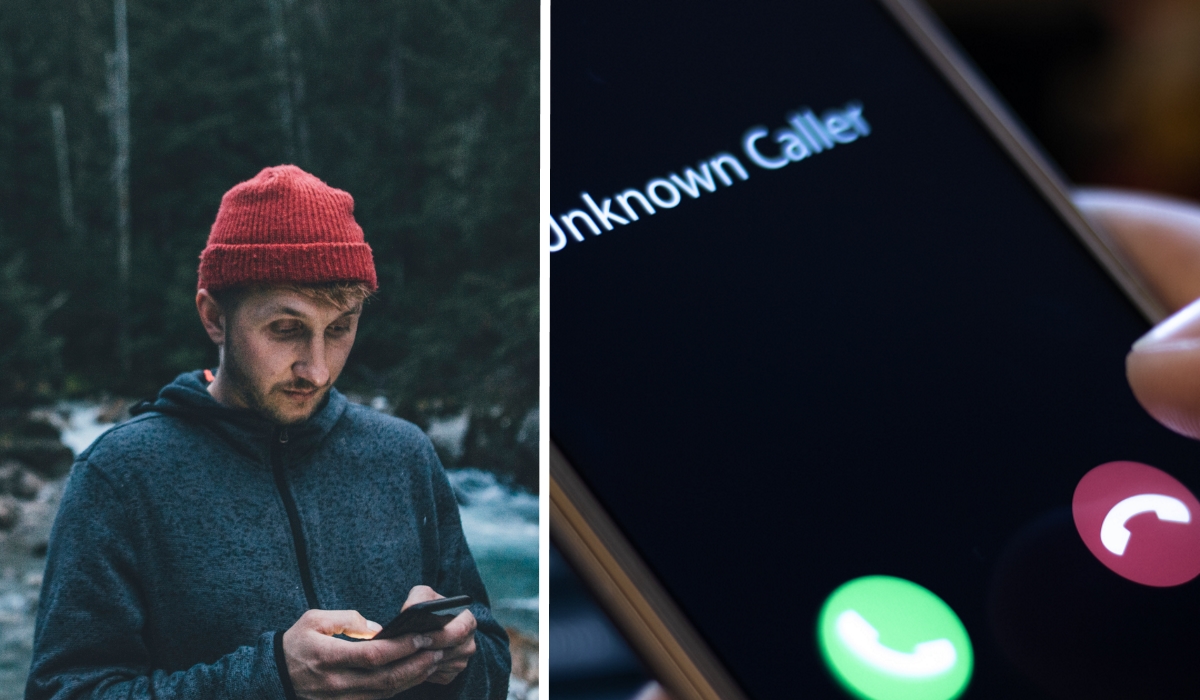A hiker who went missing for nearly 24 hours on a Colorado mountain ignored repeated calls from search-and-rescue teams — simply because the phone number didn’t look familiar. The bizarre twist, confirmed by CNN, has left rescuers both baffled and amused, while sparking a nationwide debate on digital habits and common sense in life-or-death situations.
The man, whose name has not been released, set out early one morning to climb Mount Elbert — the state’s highest peak — before losing his way around nightfall. When he failed to return by evening, his friends alerted authorities, prompting the Lake County Search and Rescue team to begin a full-scale overnight operation in freezing conditions.
As rescuers scoured the trails and tried calling the missing hiker’s phone, every call went unanswered. “We tried calling multiple times,” the team explained in a post later shared on Facebook. “But the hiker didn’t recognize the number and didn’t pick up.”
“A missing hiker ignored calls from rescuers for 24 hours because the number was unknown.” @PopBase
After wandering off the main route, the hiker eventually found his way back to his car around 9 a.m. the next morning — completely unaware that dozens of volunteers had spent the night searching for him in subzero temperatures. “He had no idea he was considered missing,” said one search coordinator to NBC News. “He told us he just got lost for a bit and didn’t think it was a big deal.”
The story, first reported by Fox News, quickly went viral, with thousands of social media users expressing disbelief. “Imagine dying because you screened your own rescue call,” one user joked on X. Another wrote, “This is peak 2020s energy — ignoring your own lifeline because it wasn’t in your contacts.”
But rescuers say the situation is no laughing matter. “We’re glad this ended safely, but it’s a reminder that if you’re overdue on a hike and see an unknown number calling repeatedly, please answer,” the Lake County team wrote. “It could be us trying to save your life.”
“Search teams say hikers ignoring calls from unknown numbers is a growing issue during rescues.” @etnow
Experts say this case highlights how modern technology — and our dependence on caller ID — can sometimes backfire in survival scenarios. “It’s almost a reflex to ignore unfamiliar numbers,” said communication analyst Dr. Sarah Klein in an interview with The Guardian. “But when you’re lost, that reflex could literally be fatal.”
Officials emphasized that this isn’t the first time missed calls have delayed rescues. In 2023, a stranded skier in Utah ignored emergency dispatchers because he “didn’t recognize the area code.” Another hiker in Alaska missed multiple rescue attempts after putting his phone on silent to “save battery.” According to Outside Magazine, similar incidents have been reported across at least eight U.S. states in the past two years alone.
Still, the Lake County rescuers were quick to note they weren’t angry — just relieved. “It’s easy to laugh, but we’ve all ignored calls like that,” one volunteer told The Denver Post. “We’re just glad he’s alive. He was lucky — very lucky.”
Social media reactions ranged from outrage to amusement. “This man owes every rescuer a beer,” one commenter wrote. Another added, “Imagine getting a call from heaven, and you still send it to voicemail.” The incident has since become a cautionary tale across hiking forums and outdoor communities.
“Hiker lost for 24 hours in Colorado ignored rescue calls because they weren’t saved in contacts.” @buzzingpop
Authorities say the hiker had not informed anyone of his route and was carrying no GPS device, relying solely on his phone for navigation. “It’s the perfect storm of overconfidence and under-preparation,” said ranger Miguel Ortiz. “He wasn’t hurt, but that’s pure luck. One wrong step in those temperatures, and this could’ve ended very differently.”
Mount Elbert, which rises over 14,400 feet, is a popular but deceptively dangerous climb, particularly in autumn when conditions can change rapidly. Search-and-rescue officials say hikers often underestimate the terrain and overestimate their preparedness. “People think, ‘It’s just Colorado — it’s not Everest,’” Ortiz explained. “But you don’t need Everest to die of exposure.”
In response to the incident, Lake County SAR has updated its official guidelines, urging hikers to save the dispatch number in advance and to always carry a backup communication device such as a satellite beacon. “The mountains don’t care how smart your phone is,” their public post read. “Answer the damn call.”
Technology experts have echoed that advice, warning that “phone culture” may be unintentionally costing lives. “Spam calls have conditioned us to distrust unknown numbers,” said digital sociologist Dr. Melissa James. “But in emergency scenarios, our digital instincts can be deadly. This case is a perfect example.”
By the time rescuers finally reached the hiker’s car, he was reportedly “embarrassed but apologetic.” In a brief statement shared anonymously through local authorities, he admitted: “I ignored a few calls, yeah. I didn’t think anyone would be looking for me that fast. I’m just thankful I made it back.”
As for the rescuers, they’ve maintained good humor about the ordeal — posting a tongue-in-cheek reminder that’s now gone viral. “If you’re lost in the woods,” the team wrote, “and your phone rings… answer it.”






